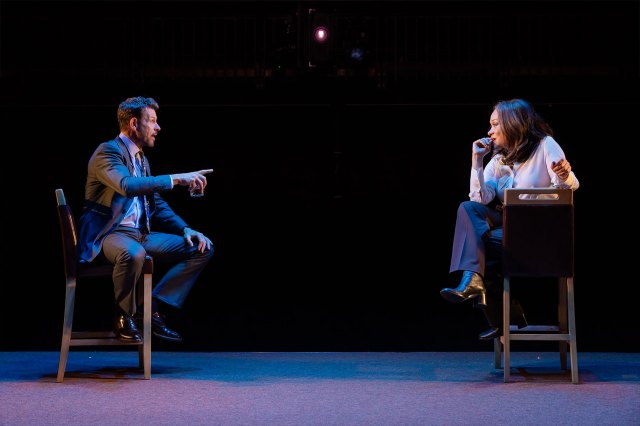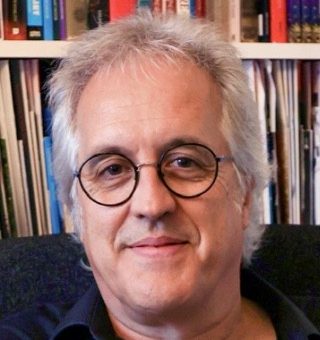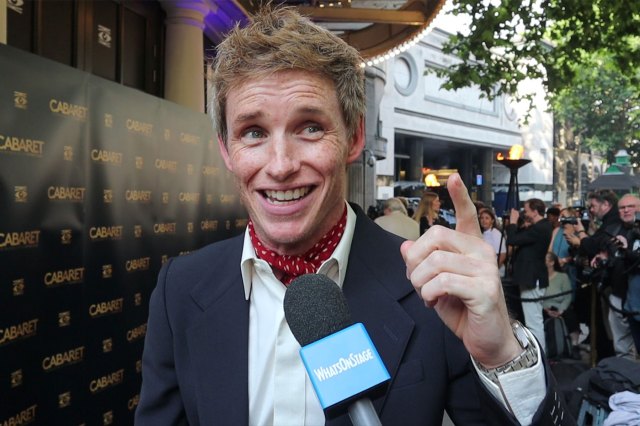The New Real at the RSC’s The Other Place – review
The RSC and Headlong co-production of the new David Edgar play runs until 2 November

There’s absolutely no doubting the playwriting pedigree of David Edgar: he’s had pieces performed at the RSC in every one of the last six decades, starting in the 1970s. He’s also the company’s most-performed playwright, after a certain Mr W Shakespeare. For reasons that are quite hard to pin down, though, The New Real is not – currently – his finest hour.
On paper, it looks thrillingly enticing, a sweeping juggernaut that unpicks the dark art of political strategists, exploring just how far their dubious ethical machinations are responsible for leading the world to its current state of polarised warring factions and tracing a clear line between low-level dirty tricks and the kind of catastrophic international interventions that have brought us, in late 2024, to the most dangerous moment in recent history.
But in the transition from page to stage, something of that thrill has evaporated, along with much of the clarity of the arguments, leaving a dense, confused and credibility-stretching three hours that leave you wondering why the blue pencil was not more rigorously wielded and the production not more energetically controlled.
In short, it feels like a work in progress, an epic and important piece that needs wrangling from its current shape and repurposed to its original intent. There’s a distinct feeling of notes still being given, of another week or two of rehearsal being required, of lines still being crafted, which means it seems not ready – yet – for a public outing.

There are some notable exceptions. Lloyd Owen’s Larry is a cynical but hugely successful American strategist who will offer his groundbreaking (and rulebreaking) skills to the highest bidder, and his performance is one of the highlights of the production, the surface charm concealing fiery self-interest. Jodie McNee is on good form too as the Yorkshire pollster whose ethical approach runs up against harsh reality as the Westerners become increasingly embroiled in fraught Eastern European elections.
But too often the dialogue is delivered in lines that no normal person would speak, by characters too implausibly stereotypical to be real, or even realistic. The multinational cast are left with creating cyphers of would-be autocrats, disaffected protestors and politicians corrupted by power. Although it has to be said there is a terrific Eurovision moment.
Holly Race Roughan, Headlong’s artistic director, helms this co-production between the two companies on a traverse stage, overshadowed by designer Alex Lowde’s giant floating video screens that help locate the action and sometimes interfere with it. Joshie Harriette’s lighting adds atmosphere, but Monika Dalach Sayers’s music is asked to do too much, attempting to generate drama where there isn’t really much to be had.
The result isn’t terrible, by any means, and its ambition, production values and global scale are all to be warmly applauded. After all, trying to make sense of today’s world in some meaningful way surely has to be one of the great aspirations of theatre. It’s just a little frustrating that this show hasn’t found a sure-footed way of doing that just yet.


















